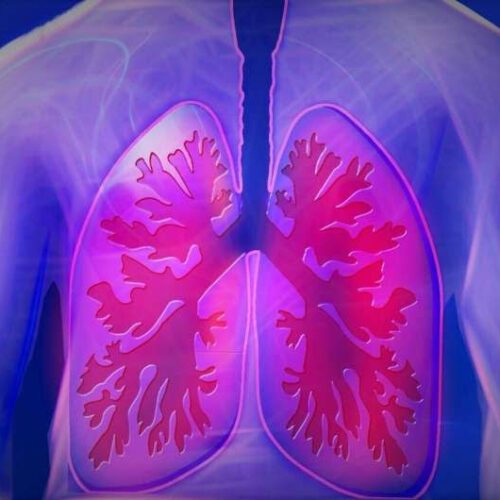INTERNATIONAL ASSOCIATION FOR THE STUDY OF LUNG CANCER IMAGE: RENELLE MYERS, BC CANCER, IN VANCOUVER, B.C. CREDIT: RENELLE MYERS, BC CANCER, IN VANCOUVER, B.C. (Vienna—August 9, 2022, 10:10 a.m. CEST)– Researchers from Vancouver, British Columbia examine the effect of duration of past exposure to air pollution with lung cancer diagnosis. In 2013, the International Agency...
Tag: <span>Lung cancer</span>
BLOOD TEST MAY IMPROVE LUNG CANCER SCREENING
Annual screenings of patients at high risk for lung cancer can catch tumors early and improve a patient’s long-term prognosis. However, low-dose computer tomography (LDCT) has a high false-positive rate that can lead to unnecessary biopsies. The researchers found a biomarker in the blood that can complement LDCT by distinguishing non-small-cell lung cancer (NSCLC) from benign nodules...
Blood test may help determine if nodules detected by CT scans are lung cancer
UNIVERSITY OF MISSOURI-COLUMBIA Annual screenings of patients at high risk for lung cancer can catch tumors early and improve a patient’s long-term prognosis. However, low-dose computer tomography (LDCT) has a high false-positive rate that can lead to unnecessary biopsies. University of Missouri School of Medicine researchers have found a biomarker in the blood that can...
Developing a new cure for lung cancer
Lung cancer is one of the most dangerous forms of cancer. Treatments are available, but they are demanding on patients and less than 30 percent survive. But mRNA technology is offering new hope for higher survival rates because treatments target the malignant cells in an entirely new way. In Norway, more than 3,300 people contract lung...
Getting tough on tuft cell lung cancer
Cold Spring Harbor Laboratory (CSHL) Professor Christopher Vakoc’s team discovered 2018 a new type of small-cell lung cancer. Cancer originates from cells known as tuft cells. The prognosis for tuft cell lung cancer is extremely poor. Now, the Vakoc team has discovered how tuft cells are generated in the body. Disrupting tuft cell development may...
Mapping the ‘energy fingerprints’ of lung cancer leads to fundamental treatment rethink
WALTER AND ELIZA HALL INSTITUTE IMAGE: ASSOCIATE PROFESSOR KATE SUTHERLAND (L) AND DR SARAH BEST (R) CREDIT: WEHI Mapping the ‘energy fingerprints’ of lung cancer leads to fundamental treatment rethink Melbourne researchers have discovered cancer and immune cells rely on the same energy sources from our body to thrive, which could trigger a fundamental rethink...
COVID-19 vaccines safe for patients treated for lung cancer with immune checkpoint inhibitors
INTERNATIONAL ASSOCIATION FOR THE STUDY OF LUNG CANCER (Denver—9 a.m. EDT–June 22, 2022)—Cancer patients have received priority status to receive COVID-19 vaccinations but there is limited data regarding the safety and efficacy of the vaccines for patients treated for lung cancer with immune checkpoint inhibitors. Now, a new study published in the Journal of Thoracic Oncology found...
Prolonged, low-level radon exposure is still a leading cause of lung cancer
A study by the University of California, Irvine, shows a strong relationship between prolonged exposure to low radon levels and lung cancer, indicating a need for enhanced protection measures. Radon gas in the air decays into tiny radioactive particles, which can damage lung cells and lead to cancer. Findings were recently published in the online journal Environmental...
Identifying new minimally invasive biomarkers for non-small cell lung cancer
by University of Missouri Credit: CC0 Public Domain In a recent study, researchers at the University of Missouri are identifying new minimally invasive biomarkers to develop a blood test for early detection of non-small cell lung cancer (NSCLC), one of two main types of lung cancer. This blood test also could help identify potential drug...
Biomarker in liquid biopsy for lung cancer appears more accurate in predicting immunotherapy response than tumor biopsy
THE MOUNT SINAI HOSPITAL / MOUNT SINAI SCHOOL OF MEDICINE New York, NY (June 2, 2022) — Mount Sinai researchers have validated for the first time that a simple blood test called a liquid biopsy could be a better predictor of whether cancer immunotherapy will be successful for a patient with lung cancer than an invasive...


